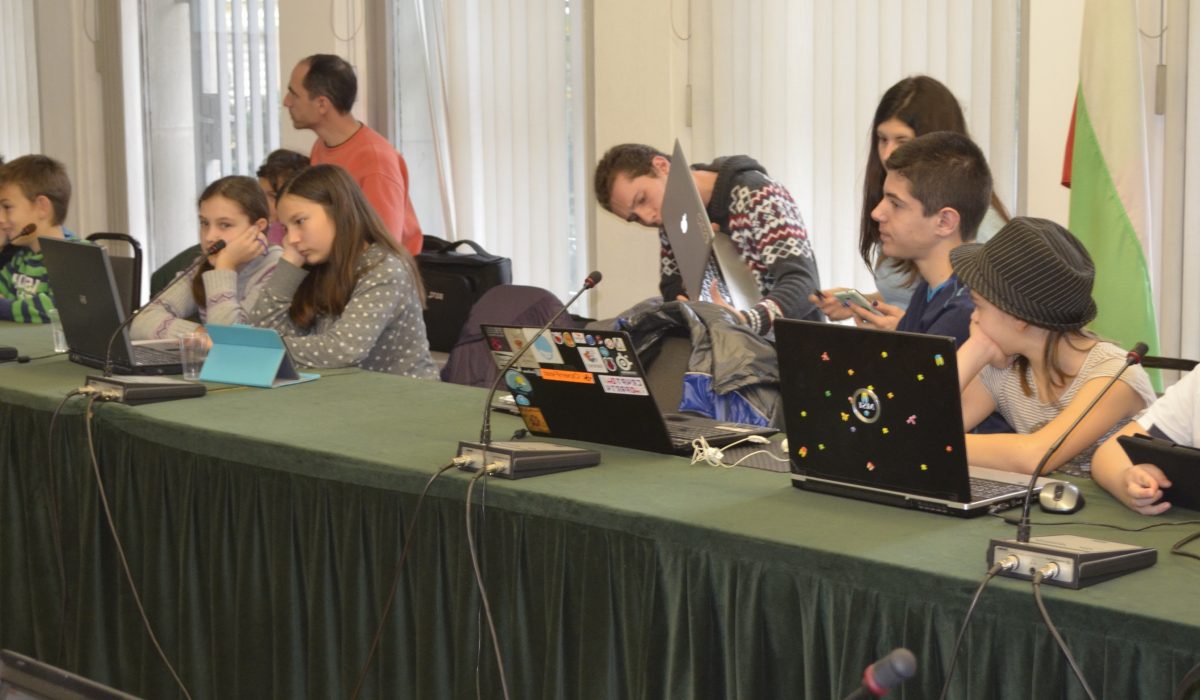In the 2016 national representative survey a total of 1,000 Bulgarian children and 1,000 parents were interviewed across the country. The researchers visited families in their homes and conducted two comprehensive face-to-face interviews – with one child and one parent. The design of the sample is multistage cluster random sample stratified by region and place of residence (the capital, a city, a medium-sized city and a small town), combined with an ethnicity quota.
The base of the survey includes parents of children aged 9-11 (400), parents of children aged 12-14 (277) and parents of children aged 15-17 (323). Additionally 130 families with children under 9 years were also interviewed in order to get some insights about what parents of children younger children allow them to do online. The child surveys took about 45-60 minutes to complete, and the parent surveys took about 15-20 minutes to complete.
The surveys covered topics related to children’s and parents’ internet activities and ICT use, as well as online risks faced by the children and parental mediation. The key themes covered in the survey include: children’s access to internet and their online practices; digital skills and abilities; the digital environment; parental support and mediation; and issues dealing with risks and safety. Different demographic data and information on family and social surroundings were also gathered.
The Bulgarian Safer Internet Centre used the results from the survey to produce three reports (see below) on online risks, parental mediation, and digital and media literacy skills. A full country report is forthcoming.
Georgi Apostolov, the coordinator of the Bulgarian Safer Internet Centre which carried out the survey, summarises the findings:
Today’s 9-17 years old Bulgarian children are real digital natives. Most of them use internet and mobile communications almost all the time and often have digital skills superior to those of their parents. This is probably the main reason why parents seems to have reduced the supervision and mediation compared to 6 years ago. However, children start using internet at an earlier age, so they need more mediation in order to develop the necessary social and media skills that will allow them to benefit from the opportunities the internet provides. The education system also has an important role to play – digital and media literacy should be urgently included in the curricula in order to educate competent and active netizens.
The research team: Georgi Apostolov, Emanuil Georgiev, Marko Hajdinjak, Petar Kanchev
Further materials from this study
Bulgaria: Are children empowered to benefit from the internet?
Online experiences of children in Bulgaria: risks and safety (authors: Marko Hajdinjak, Petar Kanchev, Emanuil Georgiev and Georgi Apostolov, Bulgarian Safer Internet Centre; 2017)
Parental support for development of children’s digital skills (authors: Emanuil Georgiev, Marko Hajdinjak, Petar Kanchev and Georgi Apostolov, Bulgarian Safer Internet Centre; 2017)
Are Digital Natives Digitally Literate? Insights from a national representative survey (authors: Petar Kanchev, Marko Hajdinjak, Emanuil Georgiev and Georgi Apostolov, Bulgarian Safer Internet Centre; 2017)
Impact work in Bulgaria: using evidence to promote digital literacy
Working on knowledge exchange and impact
Recognising online hurtful behaviour among peers
More about the Bulgarian Safer Internet Centre
You can sign up to receive the latest research news from Global Kids Online by email. Please forward this message to anyone you think may be interested.








